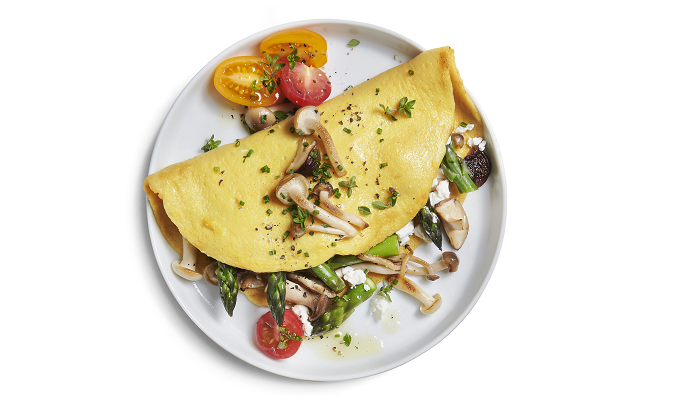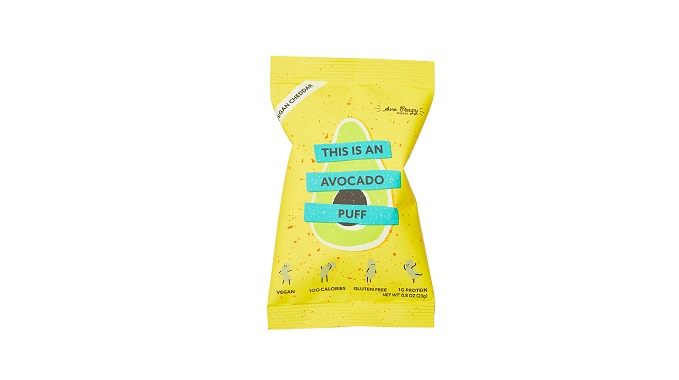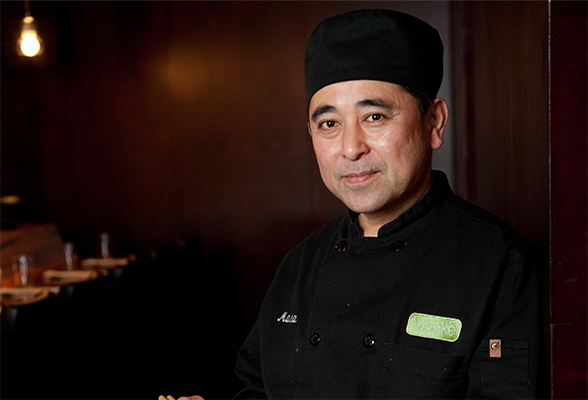Operators aim to satisfy the growing demand for healthier, plant-based egg alternatives
Affordable Plant-Based Egg Alternative Launched in U.S.
As demand for alternatives to animal products is at an all-time high among omnivores, vegetarians, and vegans alike, restaurant operators small, medium, and large are looking to add more plant-based items to their menus. One of the biggest opportunities for this category is a viable egg replacement for recipes ranging from traditional breakfast favorites and baked goods, to savory entrees and creamy sauces.
Thanks to the recently-launched egg alternative, Zero Egg, diners will be able to enjoy dishes that look, taste and function as if they were made from ordinary eggs. The company launched in the U.S. in the fall of 2020, making available to Foodservice an affordable, versatile and tasty egg alternative crafted entirely with plants.
Zero Egg is based on a unique blend of plant proteins, including soy, potato, pea, and chickpea proteins. It brings the power of plant-based to the health-conscious consumer from a nutritional standpoint with no cholesterol, low fat and low-calorie benefits (only 15 calories per egg equivalent compared to the average 68 calories of an actual egg).
“We do Puerto Rican dishes with an emphasis on plant-based ingredients, which are at the core of our food’s history. A plant-based diet may seem like the future, but we see it as a way of reaching out, learning and rekindling with our past,” said Gabriel Marrero, owner of Tropicaleo, a Birmingham, Alabama-based restaurant. “Integrating plant-based Zero Egg significantly widens our traditional food offerings in a healthy and environmentally conscious way.” Marrero opened Tropicaleo in the Avondale area of Birmingham in 2016 to cater to the growing number of diners seeking out ethnic dining options.
Now available to all U.S. foodservice operators and food manufacturers, Zero Egg offers two products, “EGG Basics,” crafted to rival ordinary eggs in traditional egg entrees and breakfast dishes, and “BAKE Basics,” developed for specialty baking. The product comes in a powder form that offers efficient, safe handling and storage, and a reliable and cost-effective solution. It is used to make scrambles, omelets, quiches, French toast, waffles, cookies, sauces, among many other dishes. It’s ready to use in minutes and can be made and stored in large batches, so it’s perfect for busy breakfast rushes and ideal for food manufacturers looking to create and launch new animal-friendly items.
“Providing Zero Egg to restaurants in the US is a dream come true for us at Zero Egg because this is exactly how we imagined our product to be used,” said Isabelle Francois, general manager, Zero Egg North America. “Designed with a clean taste and a texture to be used in a wide variety of dishes where eggs are traditionally used, Zero Egg offers restaurateurs like Gabriel increased flexibility and affordability.”
Read Also: ParmCrisps – Food & Beverage Magazine
Globally, the demand for plant-based food products will continue to trend upward, according to fall 2020 ADM research reports which also reveal that 56 percent of consumers are trying to eat more plant-based products, which will continue to push alternatives to animal analogs into the mainstream.
Last year alone, plant-based food sales climbed five times faster than overall U.S. retail food sales, according to The Good Food Institute. Retail sales data from SPINS in 2020 shows grocery sales of plant-based foods that directly replace animal products have grown 29 percent in the past two years to $5 billion. WIth increased interest in wellness and immunity among consumers, “Veganuary,” may be more popular than ever as people seek a healthy start this year in January.








